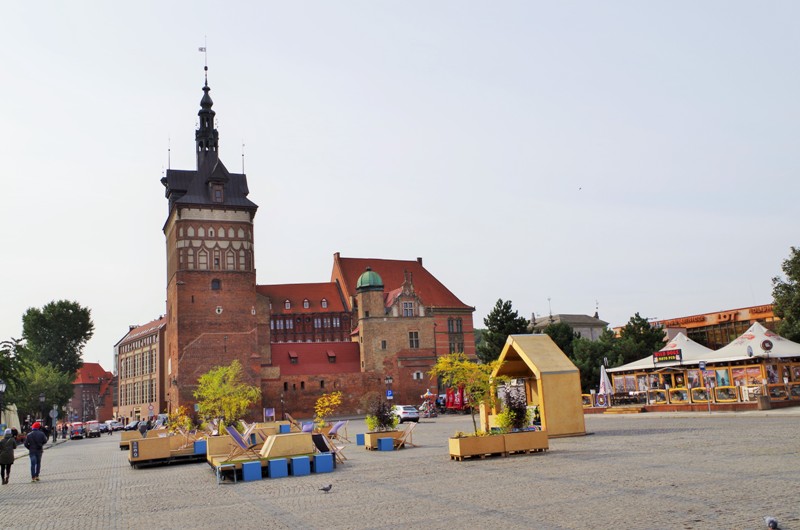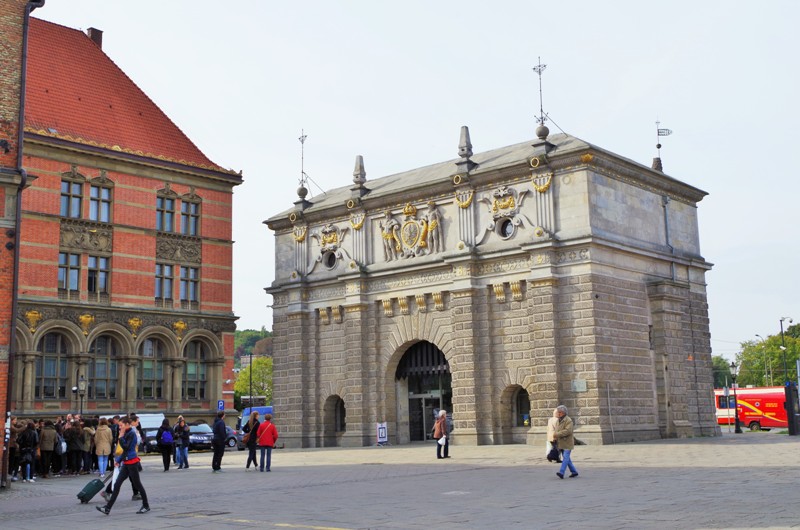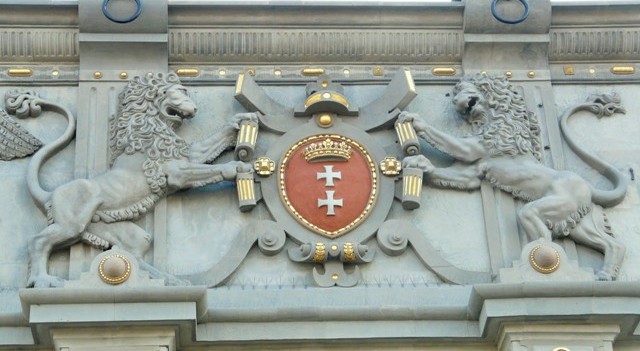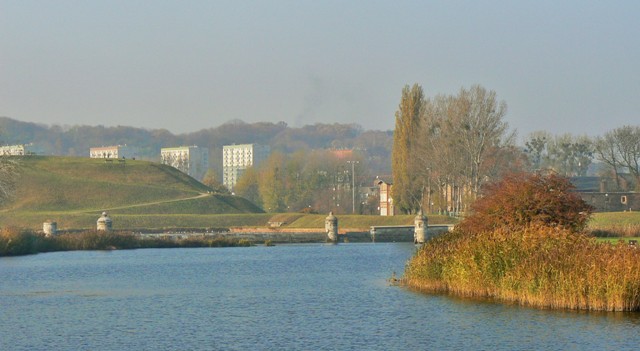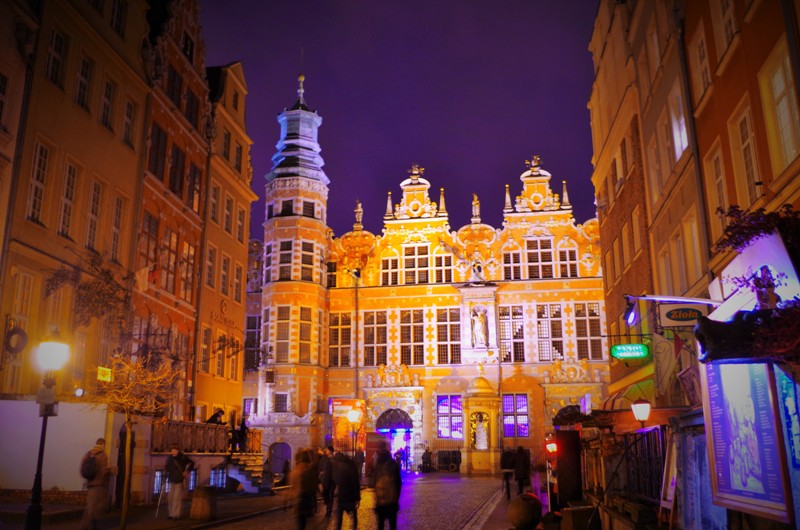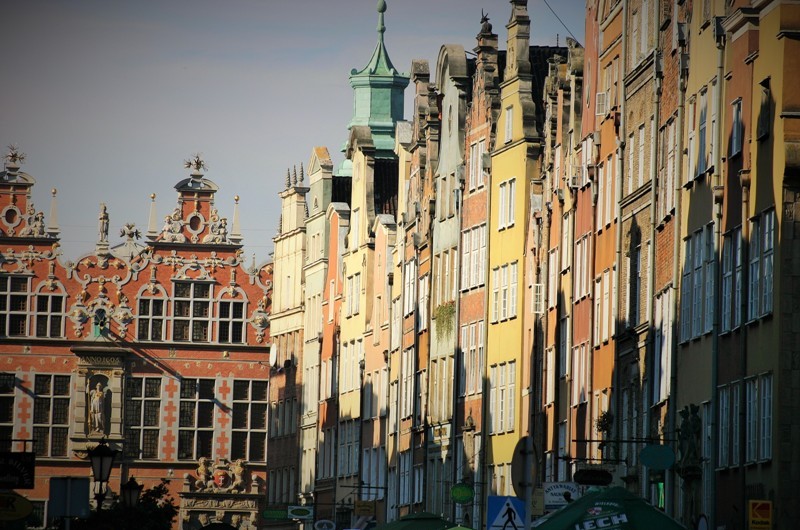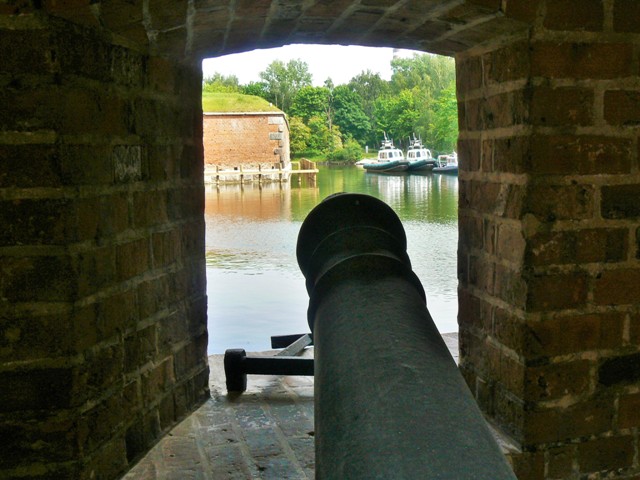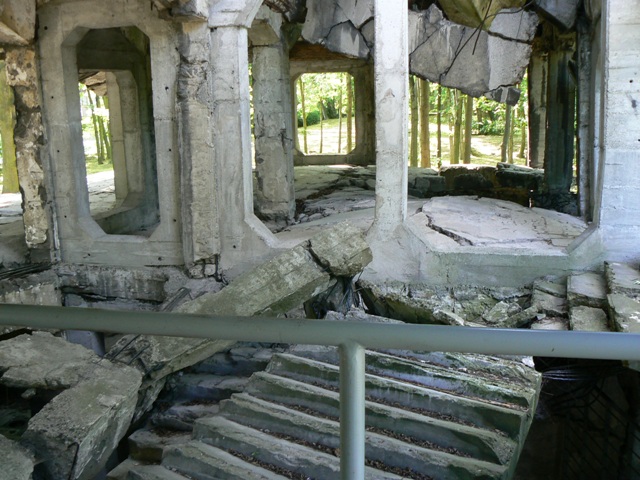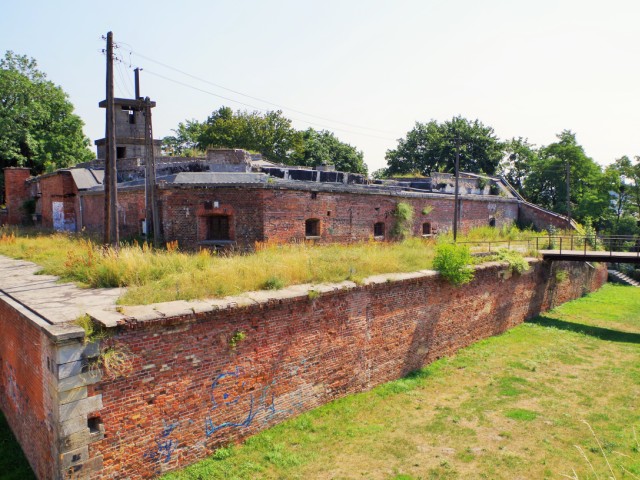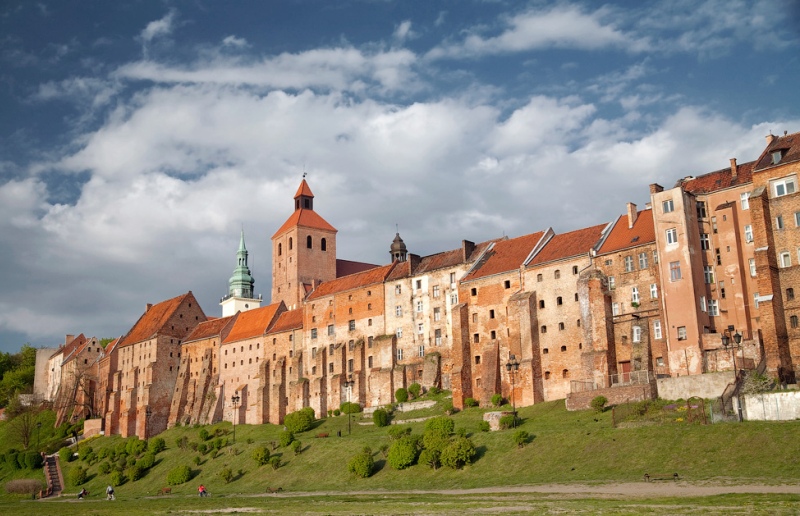FORTIFICATIONS – FORTRESS – MILITARIA
FORTIFICATIONS - FORTRESS - MILITARIA
MILITARY TOURS OF POLAND
Day 1
![]()
![]()
![]()
![]()
![]()
Gdansk

- transfer from the airport or ferry terminal
- check in at the hotel
- meals
- spa treatments
Luxury spa hotel in the centre of Gdansk

Day 2
![]()
![]()
![]()
![]()
![]()
![]()
![]()
Gdansk
- walking tour along the fortifications of the Main City
- Great Armoury
- lunch in the break
- walking tour in the Old Suburbs
- Lowland Gate
- Small Armoury
- Gdansk bastions
- dinner
- return to the hotel
- spa treatments
Lunch – Dutch cuisine

Dinner a feast in Gdansk style
FORTIFICATIONS OF THE MAIN CITY IN GDANSK
The loop of medieval fortifications around the Main City in Gdansk:
- remaining sections of a defensive wall
- flanking towers (named Strow, Jack, Swan, Corner Tower)
- water gates
- gates (Upland, Golden, Torture Chamber and Prison Gate)
GDANSK BASTIONS
Earthen fortifications surrounded by a former moat filled with the water of the Motlawa river. This complex forms just a remnant of a huge defence system that used to surround Gdansk and that dates back to the early modern period. It is one of the biggest and the best preserved system of 16-17th century fortifications.
GREAT ARMOURY
It’s one of the most beautiful and precious objects built in Dutch Mannerism style in Europe. It was raised in the beginning of 17th century as an armoury and gunpowder works, humorously called by Gdansk bourgeoisie as pharmacy.
Day 3
![]()
![]()
![]()
![]()
![]()
![]()
![]()
![]()
![]()
![]()
![]()
Gdansk
- walking tour to the Fortress of Gradowa Hill in Gdansk
- lunch
- cruise to Westerplatte
- sightseeing of Westerplatte fortifications
- bike tour to Wisloujscie Fortress
- sightseeing of Wisloujscie Fortress
- return by bikes to Gdansk centre
- dinner
- return to the hotel
- chill out in spa area
Lunch in a restaurant with a stunnig view of Gdansk

Dinner – Kashubian feast with folk music live
WISLOUJSCIE FORTRESS
Although the roots of the fortress date back to 14th century, the fortress started to turn into the present shape at the end of 15th century. The major task of the fortress was defence of Gdansk port. It was also functioning as the lighthouse and checkpoint for ships heading to Gdansk. Worthy a note is beautiful shape of the fortress and innovative structure. The substructures of the fortress are grounded on wooden containers, which are set under water. The hardcore that was put into containers form base where the fortress was built. The central point is the tower surrounded by brick-built circle to which officers’ houses adhere. Exterior part is formed by four-bastions Fort Carré, which adjoin to the Vistula river from one side and is surrounded by Eastern Bulwark and the moat from other side. The fortress has never been captured. It is invaluable monument of military architecture.
Cruise to Westerplatte

Bike trip to Wisloujscie Fortress

SIEGE OF WESTERPLATTE
The first battle of World War II that lasted from 1 to 7 September 1939. The attack began when the battleship Schleswig-Holstein opened without warning fire towards Polish garrison. The battleship arrived on a ‘courtesy visit’ to the Free City of Danzig to pay tribute to German sailors from cruiser ‘Magdeburg’, fallen in Baltic Sea in August 1914. Secret plans projected completely different scenario… Westerplatte battlefield is listed on the Monuments of the History list. At the battlefield area, it is possible to see ruins of Wojskowa Składnica Tranzytowa (ammunition depot), i. a. ruins of reinforced concrete guardhouses.
GRADOWA HILL FORTRESS (GDANSK GORD)
Gradowa Hill Fortress (Gdansk gord, i.e. a place of early Slavic settlement) – complex of bastions and entrenchments set up in response to increasing threat of a conflict between Poland and Sweden in XVII century. The fortifications are comprised of earthworks braced with brick-built constructions. The fortified hill buffered Gdansk during Swedish siege during Charles X Gustav’s invasion of the country as well as during the Great Northern War. In the beginning of 19th century the hill was redeveloped by Prussians (who were in power in Gdansk at that time) to prepare a defence of the city against the approaching French Army. It was in vain as it turn out later. After having captured Gdansk Napoleon visited the hill personally in order to supervise the ongoing modification works. From then on, the hill was to be commonly called Napoleon’s Fort. During Polish People’s Republic period the communistic government installed in the fortress the facility which was jamming Radio Free Europe.
Day 4
![]()
![]()
![]()
![]()
![]()
![]()
![]()
![]()
![]()
Gdynia – Sopot


- transfer to Gdynia
- Polish Navy Museum in Gdynia
- lunch
- ORP Blyskawica Museum
- transfer to Babie Doły
- torpedo tube
- transfer to Sopot
- dinner
- return to Gdansk
Lunch with beautiful view of Gdansk Bay

Dinner in Sopot
GDYNIA TORPEDO LAUNCH
Gdynia torpedo launch – object where Luftwaffe torpedoes were tested. Torpedo tube was built on Gdansk Bay in 1941. After World War II, most of fitments were seized by Soviet army and transported to USSR. It is a home for many spices of water fowl and object of expeditions for dives and lovers of water sports nowadays.
Day 5
![]()
![]()
![]()
![]()
![]()
![]()
![]()
![]()
![]()
![]()
![]()
![]()
Hel

- cruise to Hel
- walking tour in Hel, Wiejska Street, harbour
or
- Laskowski Weapon Emplacement
- lunch
- bike trip to Muzeum Obrony Wybrzeza (The Coastal Defence Museum)
- return by ship or train
- dinner in Gdansk
- accommodation
Lunch in Hel – fish of the morning catch

Dinner – beer feast
Cruise to Hel

HEL
It used to be a small Kashubian fishing village accessible only by boat. Today it is a popular bathing resort.
Hel as the main station of Polish Navy was attacked by German army on the first day of World War II – 1 September 1939. Later on the peninsula was intensively fortified by Germans between 1944 -1945. In period of Cold War, because of the strategic location, Hel once again became the most important base for Polish Navy. In those times the access to the town was limited for the civilians.
Bike trip to the museum

Day 6
![]()
![]()
![]()
![]()
![]()
![]()
![]()
![]()
![]()
![]()
Rabka – Leba – Slowinski National Park – Ustka


- transfer to Rabka
- transit by electric vehicles to Rocket Launcher Museum
- walking tour to dunes
- return by electric vehicles
- lunch
- transfer to Ustka
- bunkers and nether regions in Ustka (Fortress Ustka, Blücher Weapon Emplacement)
- dinner
- return to Gdansk
Lunch in Leba

Dinner in Ustka
BLÜCHER WEAPON EMPLACEMENT
‘Blücher’ – German bunkers complex from 1930s, part of unaccomplished investment – trade and naval port, which was launching to take over water transport between Reich and the enclave in East Prussia avoiding transit via ‘Polish Passage’. These days, mysterious nether regions of Blücher Weapon Emplacement function as multimedia museum.
Day 7
![]()
![]()
![]()
![]()
![]()
![]()
![]()
![]()
Bydgoszcz

- transfer to Bydgoszcz
- Exploseum DAG Fabrik Bromberg
- transfer to Bydgoszcz Old Town
- lunch
- walking tour in Old Town
- ‘Bydgoszcz Venice’
- transfer to hotel near Grudziadz
- dinner
- spa treatments
Hotel in marvellous palace

Lunch – regional delicacies in Bydgoszcz Old Town

Dinner – noble revel in the palace
DAG BROMBERG COMPANY
DAG Bromberg Company was built for the needs of III Reich military missions. The factory fulfilled 1/5 requisition of German army fighting on Eastern Front in TNT, smokeless powder and nitro-glycerine. There were employed about 40 thousand unfree labourers. Many of them died because of penal work. In the complex of 7 factory buildings connected by system underground tunnels and passages we can find i.a. exhibition dedicated to Alfred Nobel.
Day 8
![]()
![]()
![]()
![]()
![]()
![]()
![]()
![]()
Grudziadz – Gdansk

- transfer to Grudziadz
- Fortress Grudziadz, the Citadel
- transfer to the Old Town
- lunch
- walking tour in the Old Town:
– Cavalry Training Centre
– city walls, Water Gate, riverside promenade
- transfer to Gdansk
- dinner
- check in at the hotel
Hotel in Gdansk

Lunch in Grudziadz Old Town

Dinner in Gdansk
Polish cuisine in a modern style
GRUDZIADZ FORTRESS
Grudziadz Fortress – a system of forts which was set up at the turn of the 19 and 20th century. The major task of the fortress was a defence of Grudziadz and a strategic bridge on the Vistula river against a possible Russian advance. Both central and the oldest point of the fortress is the Citadel. In the beginning of World War II Germans used Grudziadz Fortress as a testing ground as well as a magazine. With the perspective of Eastern Front’s retreat Hitler once again set the city a high goal: being the last line of defence. Only after intensive fighting between January and the beginning of March 1945 the Red Army defeated Germans who first took refuge in the Citadel and capitulated eventually on 6 March 1945.
Day 9
![]()
![]()
Gdansk
- meals
- transfer to the airport or ferry terminal
from 720 € per person*
*for 50-person group. The price includes accommodation in double rooms, meals, guided tours, guide assistance, bus transfers, cruises, bike trip, transit by electric vehicles and admissions. The price does not include spa treatments and transport to and from Gdansk.
The programme is addressed to groups from 10 to 50 people
The above offer is intended as information and does not constitute a commercial offer within the meaning of article 66 § 1 of the Polish Civil Code and other relevant legal provisions.
Legend
- hotel
- ferry or ship cruise
- horse riding
- knowledge
- shopping
- bus transfer
- canoeing rally
- monuments
- art
- attractions for kids
- meals
- amusement park
- workshops or team building
- car rental
- plane
- bike trips
- swimming pool
- active
- relax
- fishing
- walking tour
- diving
- nature
- spa
- nature study
- RIB
- narrow-gauge railway
- surfing
- adventure park
- bungee jumping
- go-karts
- golf
- off-roading
- zip-line
- shotting range or paintball
- quads

